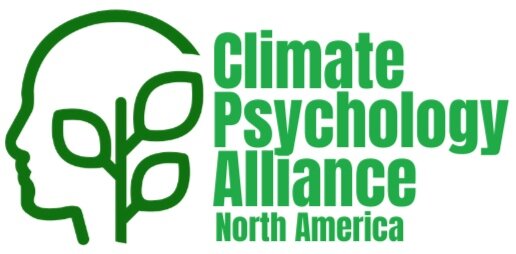In the face of extreme weather events - climate and other large scale crises, traditional disaster mental health models often focus on individual pathology and treatment. However, communities are deeply interconnected systems, and collective trauma requires collective healing. This module explores a community-centered approach to disaster mental health, emphasizing the role of connection, culture, and shared co-regulation in trauma recovery.
Grounded in somatic-based therapeutic practices (including polyvagal-informed movement, breath, Trauma Center Trauma Sensitive Yoga, and Creative Art Therapies), this session provides participants with practical tools to support nervous system regulation at both individual and community levels. We will examine how somatic approaches enhance community resilience, facilitate communal co-regulation, and foster adaptive responses to disaster related stress.
Through experiential learning and discussion, participants will leave with strategies to integrate mind-body practices into community mental health initiatives through trauma sensitive responses to crises. This is a highly interactive 3-hour training with breakout rooms
Meet the Host:
dix Moore-Broussard M.A.A.T., AThR., TCTSY-F. She is a polyvagal-Informed art therapist, a certified specialist in traumatic stress studies, neurodivergent studies, and Trauma Center Trauma Sensitive Yoga (TCSTY), B.A. In Fine Arts/Psychology. M.A.A.T. Masters of Art in Art Therapy.
She is a generational New Orleanian and moved to the Middle East in the 1980s (oil & gas industry) with her family. Deeply influenced by South Louisiana's climate challenges and extreme weather events, their work took a pivotal turn following the devastation of Hurricane Katrina. Profoundly impacted by the disaster and the city's slow recovery, dix began researching trauma, generational trauma, traumatic stress, racialized trauma, and disaster response with a specific focus on the disconnect of community and the importance of collective healing emphasizing cultural humility. This led dix to develop an innovative community-based approach to trauma/disaster recovery, aimed at fostering resilience and healing in the face of crisis through the arts and neuroscience.
She is the Executive Director of The Neutral Ground Collective, Inc. www.tngcollective.com
REGISTER HERE
CEs are available. When you purchase a ticket, plase add a CE option to your cart.
Climate Psychology Alliance - North America is approved by the American Psychological Association to sponsor continuing education for psychologists. Climate Psychology Alliance - North America maintains responsibility for this program and its content.
Learning Goals
Define collective trauma and identify its impacts on communities experiencing climate-related disasters and other large scale crises.
Describe the role of the autonomic nervous system and somatic responses in the experience and treatment of trauma.
Demonstrate somatic-based therapeutic techniques that support the nervous system regulation and flexibility in disaster affected populations and/or disaster prone communities/slow onset disasters (i.e. Coastal states along the gulf, oil & gas industries, sea level rise).
Analyze the connection of social cohesion, collective healing, and disaster recovery.
Design a trauma-conscious, culturally responsive intervention plan that integrates somatic practices that is culturally sensitive for use in post disaster mental health response.
Selected References:
Heart, M. Y. H. B., & Chase, J. (2016). Historical trauma among indigenous peoples of the Americas: Concepts, research, and clinical considerations. Wounds of History, 270-287.
Charles, M. & Rah, S-C. (2019). Unsettling Truths: The ongoing dehumanizing legacy of the doctrine of discovery. Intervarsity Press. Downers Grove, IL.
Chemaly, S. (2024). The Resilience Myth: New thinking of grit, strength, and growth after trauma. One Signal Publishers.
Clarke, K. G. (2021). Moving Through Collective Adversity: Lessons from Posttraumatic Growth Research for Appreciative Inquiry Practice. Organization Development Review, 30.
Dana, D. (2021). Anchored: How to befriend your nervous system using the polyvagal theory. Sounds True. Boulder Colorado.
Forrester, S., Jacobs, D., Zmora, R., Schreiner, P., Roger, V., & Kiefe, C. I. (2019). Racial differences in weathering and its associations with psychosocial stress: the CARDIA study. SSM-population health, 7, 100319.
Levine, P. (1997). Waking the Tiger: Healing Trauma. North Atlanta Books. Berkeley, Ca.
Lipsky, L. (2009). Trauma Stewardship: An everyday guide to caring for self while caring for others. Berret-Koehler Publishers, Inc. Oakland, Ca.

